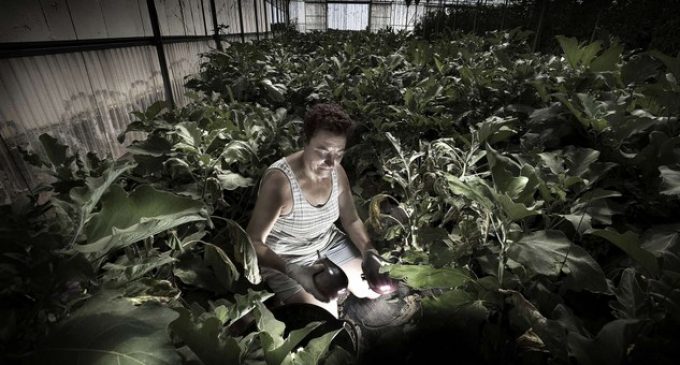Shift to Sustainable Food System in Europe is Possible – But Faces Challenges

Making Europe’s production, consumption and trade in food environmentally sustainable is possible, but it will require a major shift in public attitudes, policies and knowledge and seizing current opportunities for change, according to a newly published European Environment Agency (EEA) report.
The EEA report ‘Food in a green light,’ analyses the challenges Europe faces in shifting to a sustainable food system and looks at current opportunities for change. The European Union must transform its food system to achieve the United Nations’ Sustainable Development Goal of ensuring sustainable food production systems by 2030 and the European Union’s long term sustainability goal of ‘living well, within the limits of the planet’ by 2050. The report is a first EEA assessment of what a greening of Europe’s food system might involve. It looks at the current state of play of Europe’s food system against the goals of food and nutrition security, ecosystem health, and social and economic well-being.
The challenge of going green
Europe’s food system is a large and complex one. The food supply chain, including agriculture and fisheries production, processing and manufacturing, through to the food and drink industry, had a turnover of €3.9 trillion in 2013. All these activities within the EU have an impact on the environment but also beyond its borders due to imports of food and feed. The system is a major consumer of energy and water and a large emitter of greenhouse gases and air pollution. The amount of energy necessary to cultivate, process, pack and bring food to our tables accounted for 17 % of the EU’s gross energy consumption in 2013, equivalent to about 26 % of the EU’s final energy consumption that same year.
The report argues that reducing the environmental impacts of the food system requires more efficient and sustainable use of natural resources, changes in production methods, food choices and diets, and reducing environmental risks by phasing out the use of harmful chemicals throughout the food chain. Current policies mainly target producers and consumers and focus on improving the resource efficiency of the food system and consumer awareness. This approach can improve the environmental performance of the food system, but it will not deliver the type of transformation that is needed to meet sustainability goals.
What will be key is changing mind-sets from a focus on food security and economic performance. Thinking about the different parts of the system, who is involved and relevant policies together can help to identify more effective actions. While Europe does not have a common food policy, it does have many related policies. Meeting long-term sustainability goals also depends on decisions being made today and the report identifies how current EU policy processes, objectives and targets offer opportunities to change the food system and deliver better outcomes for producers, consumers and the environment.
Other key challenges include:
- Ensuring nutritious food at affordable prices.
- Providing viable and just incomes for farmers, fishers and other workers involved in the food system.
- Ensuring safer food – by reducing the impacts on health from pollution related to food production. This includes the phasing out the use of harmful chemicals throughout the food chain.
- Promoting dietary shifts to consume lower quantities of meat, dairy products and eggs which would reduce environmental impacts as well as reduce health risks.
- Dealing with food waste at different stages along the food supply chain.
- Reducing Europe’s overseas land-use footprint, ensuring imports of sustainable livestock and aquaculture feed.
- Dealing effectively with the impact of climate change on food production and food prices.
- Reducing the negative effects of urbanisation on land use, especially arable farmland.
- Effective implementation of current commitments in the areas of agriculture, fisheries and aquaculture, environmental protection, and research and innovation.




























